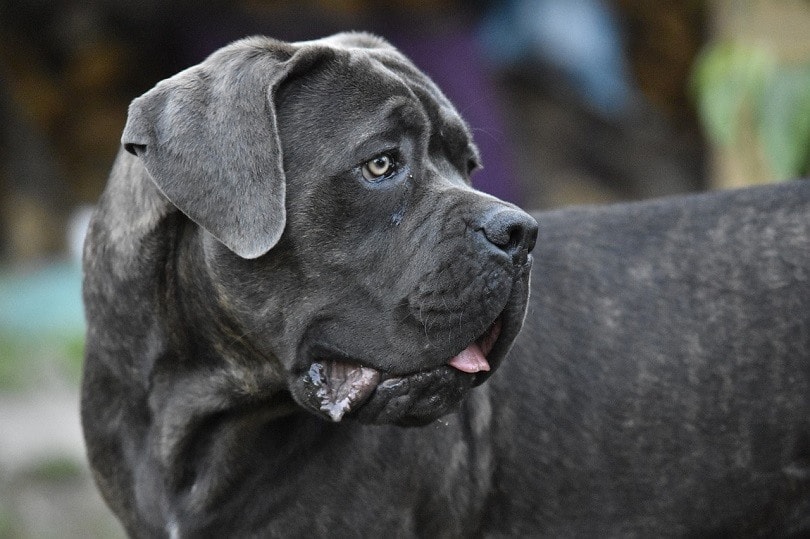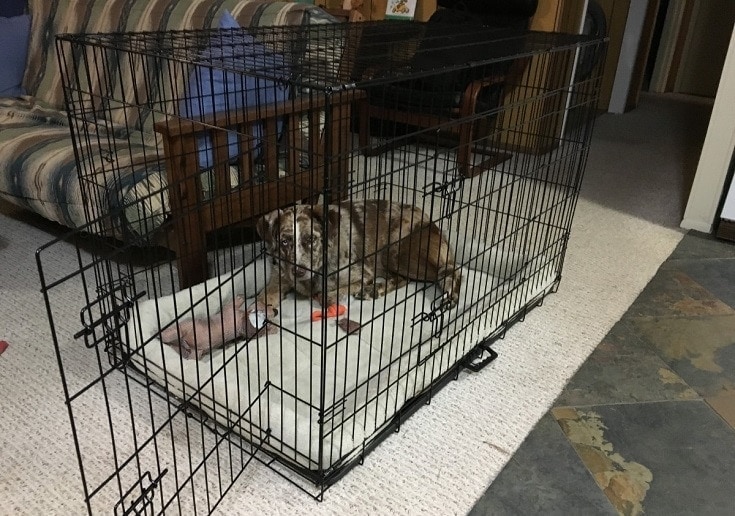Will Homeowners Insurance Cover My Pets? (Pet Coverage & FAQ)

Updated on

Part of the joy of pet ownership is the unexpected excitement our furry companions bring to our lives—except when it involves them getting into trouble. Pets can do their fair share of damage, whether chewing on clothes or ripping through the garden. One study even showed they wreck over $3 billion worth of electronics alone every year!1
And while we may tolerate the fallout in the home, that destructive behavior can have severe consequences outside of it. Our animals are our responsibility, which means we’re on the hook if they injure someone or damage property. Fortunately, your homeowner’s insurance likely provides valuable coverage to help you in certain situations involving your pets. We’ll explore whether homeowners insurance covers your pets, so you can protect your family and finances when the unthinkable happens.
Will Homeowners Insurance Cover My Pets?
Homeowners insurance covers pets from a liability standpoint. If your cat or dog causes bodily harm or property damage to someone, your insurance will kick in to help with hospital and medical bills, property repair and replacement, and resultant lawsuits. Legal fees include your attorney costs, court fees, and the final settlement, with your insurer offering support whether or not you win the case.
Coverage does not include injury to you, family members, or anyone else who lives in your home. It extends to anyone visiting your house and anyone your dog injures outside the home.
- Your dog knocks over and injures a guest at your backyard barbecue
- Your dog bites someone while at the dog park
- Your cat knocks over and breaks a neighbor’s garden statue
The liability section of homeowners insurance does not entail a deductible. Standard coverage amounts are typically at least $100,000, but you can work with your insurance company to raise your limits as you see fit.

Will Homeowners Insurance Cover Damage to My Home?
Unfortunately, your homeowners insurance will not cover when your pet damages your property. Your pet may chew your furniture or pee on the carpet, but insurance companies see that as your responsibility to pay for and train out.
Does Insurance Cover Injury to My Pet?
Homeowners insurance generally only includes your pet in the liability coverage portion. But you should still check the extent of your coverage. You may have limited coverage for injuries from covered incidents that occur on your property. For instance, if your pet incurs vet bills from a covered peril, your insurer may supply an amount to help with bills. They may also provide a similar amount as a death benefit if your pet dies from a covered incident.
Your insurance won’t cover any other kind of injury in any circumstance. Any vet bills from altercations with animals, household accidents, and illnesses will be yours to pay. Unexpected incidents like these make separate pet insurance crucial, giving owners a lifeline when faced with expensive procedures and treatments.
Do I Have to Add My Pet to My Homeowners Policy?
You will have to call your homeowners insurance company about your pet, whether you had it before you applied for insurance or got it after the fact. Insurance companies can deny a claim if they don’t know about the pet. In worst-case scenarios, they could drop your coverage.
Your insurer must know about any animals in the home so they can research the pets, make an informed decision, and add reasonable stipulations. They may require your pet to take training courses to earn coverage, for instance, or exclude certain animals entirely based on breed or background.
Adding a pet can raise your premiums, but the benefits almost always outweigh the extra costs. There are roughly 4.5 million dog bite incidents every year, averaging nearly $50,000 per incident in claims and settlements. Circumstances can change in the blink of an eye, and homeowners insurance coverage for your pets may become a lifesaver.

What Pets Does Homeowners Insurance Cover?
Homeowners insurance primarily covers cats and dogs, though many include hooved farm animals, reptiles, and small animals like rats and gerbils. Your insurer may limit certain dog breeds. The following are only a few breeds that many insurers consider highly aggressive:
- Akita
- Alaskan Malamute
- Doberman Pinscher
- German Shepherd
- Pitbull
- Rottweiler
- Siberian Husky
Exotic pets are typically excluded from insurance policies as well, including hybrids. For instance, Savannah cats and Bengal cats likely won’t have coverage. Statutes vary by state, so researching your local laws and discussing your pet with your insurance company is crucial in ensuring adequate protection.
Will an Incident Affect My Insurance?
An incident involving your pet, especially a dog bite claim, can negatively affect your insurance. Your insurer may raise your premiums after a claim or take your pet off the policy altogether. Researching your policy and talking with an insurance professional will help you retain coverage for your pet and save as much money as possible.
Does Renters Insurance Cover My Pets?
Renters insurance covers pets in much the same way as homeowners insurance. Providers pay out for covered incidents involving pets that injure or cause property damage to another party.
Bear in mind that your relationship with your landlord is also at stake if your pet causes damage, no matter how your insurance company handles it. If your dog bites someone, they may evict you because they see your pet as dangerous.

How to Protect Your Pets
Preventing the kinds of interactions that would lead to a homeowners claim because of your pet should be your top priority. By keeping them contained and directing their behavior, you’ll enjoy a better relationship with your pets, neighbors, and insurance company, saving you money and trouble.
Training and socialization at a young age are crucial. Whether you pay for a professional or train your dog at home, getting your pet to control their impulses and follow your lead will help you respond if they get off the leash or escape out the front door.
If your dog plays outside, make sure you have a tall and stable fence they can’t leap or burrow under. More importantly, giving your pet time around people and pets at parks and on play dates will make them less likely to become hostile with others.
Alternative Insurance Options for Pets
You may also worry about having adequate coverage should your dog harm someone. An umbrella policy enhances your homeowners policy, giving you extra liability coverage in million-dollar increments. Coverage only costs roughly $200–$300 annually but can save you tons if your pet causes severe damage.
Separate pet liability insurance is also available. Specialty providers offer insurance for high-risk dog breeds and other animals your homeowners policy won’t cover. Consider added coverage if your dog is over 50 pounds or you feel your pet could be a greater potential danger to others.
Final Thoughts
Homeowners insurance can be vital when your pets find themselves in precarious circumstances. Check your policy today to see where your four-legged family members fit within your insurance. It only takes quick research and a small investment to get ample coverage, and it’s a minor effort that can protect your home and those around you.
Featured Image Credit to: SaiArLawKa2, Shutterstock












